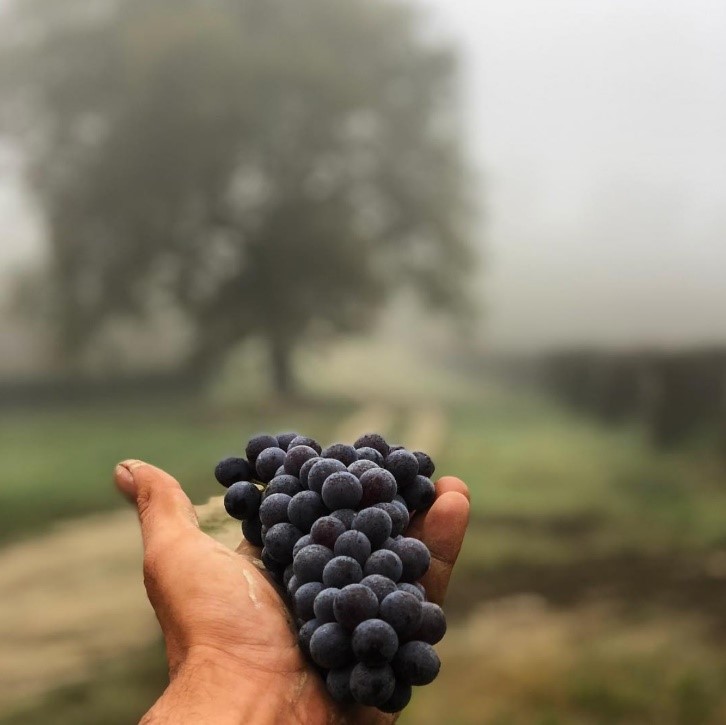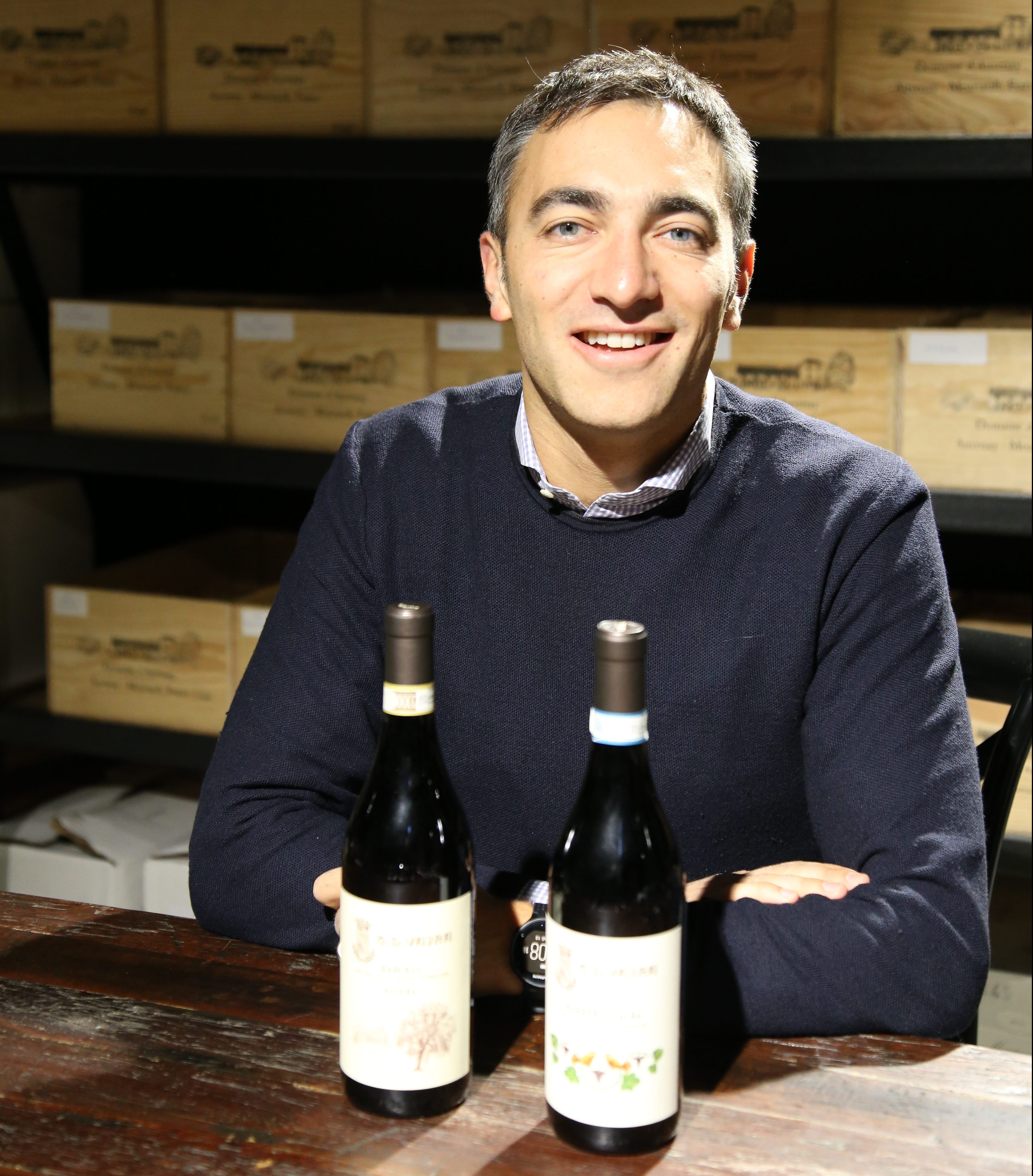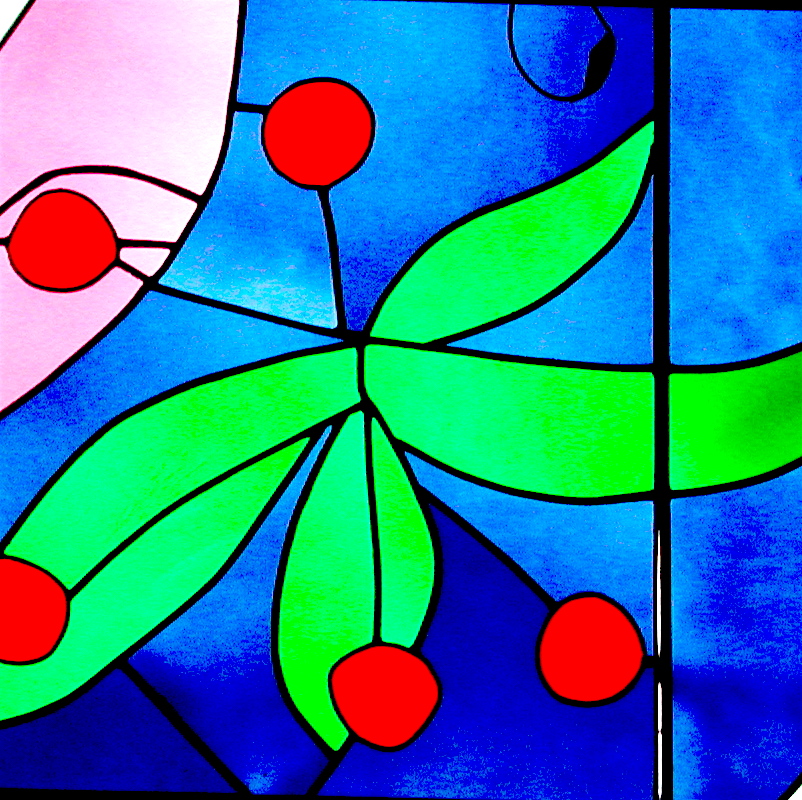By Ed Merrison

It’s like synaesthesia. Whenever I hear the Vajra name or taste the wines, I see a riot of colour. It’s like drinking in the cheerful hues of the labels and stained-glass windows, or splashing through the poetry-soaked palette of the Barolo landscape.
Giuseppe Vaira reckons he wasn’t brainwashed. I don’t think I was either. It’s just that every interaction with the wines, the place and the people has felt like tracing another vivid detail on the same seamless canvas.
Fluidity and fusion are in G.D. Vajra’s DNA. A good dose of that genetic material was dished up by one Aldo Vaira, the flock-defying, tractor-loving intellectual who founded the estate in the early ‘70s. “I feel like I’m still discovering my father, but I guess it’s a journey like all human relationships,” says eldest son Giuseppe. “It’s a very alive relationship; it’s not like something stuck in a moment that’s always the same.” Aldo is cast as a multifaceted, nuanced character. “He can be strong in situations that would make other people feel weak. Very at peace, very hopeful, very faithful; he’s not going to give up,” says Giuseppe. “On other occasions when you want him to be more forceful, he’s not. When it comes to human relationships, he’s one of the most delicate, sensitive people I know.”
This gentleness may sometimes do a disservice in the short-term – the family’s lost out on acquiring coveted vineyard to more assertive rivals, for instance – but it’s a corollary to another virtue that’s stood G.D. Vajra in good stead in so many ways. “It took me time to realise that patience is incredibly important. I think it’s possibly the most important lesson I’ve learned from him,” says Giuseppe. “That certainty that things will happen over time, but at a time we do not decide. He doesn’t try to force the situation.”
However acute Aldo’s influence has been, it’s only half the story. “I can’t see Vajra as a one-man show,” says Giuseppe. “It’s always been a two-person show.” His mother Milena was raised on the plains some 20 miles from Vergne, by a family of cattle farmers. Agricultural accomplishment abounds on that side, too, with the grandparents’ house still filled with trophies from prize-winning Piedmontese veal. Milena wanted to work the land, too, but back in the ‘80s her best hope was as a farmer’s wife. “She realised she needed to go to college first to make a stand for herself if she wanted to be what she wanted: not just a wife but someone who shapes reality through work.” As fate would have it, she fell in love with a handsome professor of viticultural sciences nine years her senior. They soon married with Milena still in her early ‘20s. And there she was, shaping a reality she hadn’t foreseen, on a wine farm in Barolo. “She really complements our dad in the sense of her charm, her passion, her drive and energy.”

Aldo moved back to the fields in the late ‘60s, at a time when contemporaries were leaving the countryside in droves. What drew him was the spell of the land and the freedom of farming. As Giuseppe points out, there was always a creative aspect to this. “It was not about bucolic, untouched wildlife; it was nature as farming – so it was interaction between nature and humans.” And then the magic of making wine sprung from elevating that interaction into a form that would carry new significance and personality. “Eventually each bottle is like a picture, is a shot taken with a certain time and exposure and light,” says Giuseppe. “In other words, framing a moment – a certain grape and vintage.”
The artistic metaphor is apt. The family’s dedication to allowing every one of the Langhe’s great grapes shine in their own right – Moscato, Dolcetto, Barbera, Nebbiolo and Freisa – is rooted in a sense that the portrait of home would otherwise be unfaithful. A wholehearted portrayal is called for – but equally important are aesthetics. “Life is beauty at the end of the day,” says Giuseppe. Art and literature were omnipresent growing up, and every winter holiday’s itinerary featured visits to exhibits and local museums. “I never felt we were forced or brainwashed into this. Our parents just wanted to show their three little children what is beautiful about life, and then it grew spontaneously.” He and his siblings have their own tastes but common to each is a capacity to appreciate. It’s something Giuseppe wants to instil in his young children, too. “I’m not dragging them into museums at the age of four or five just because. But when you see something nice, you just point it out – whether it’s a mountain or a sunset or a starry sky.”
With all the art, then, where does the technical stuff come in? As a student, Giuseppe was actually on the path to medical school, and was only assured he could hack it in the family business when the combined nerdiness of vine physiology and wine science promised enough to feed his inner geek.
The precision of the wines makes clear that creativity and technical nous are evenly matched here. The marriage of the two is evident in ways methods have been adapted and equipment customised. But, Giuseppe says, aesthetics come first. “The bottom line is: ‘What is the wine we’d like to produce? What is the wine we’d like to drink?’.” And from there, the Vairas work backwards, weighing the options and possibilities, wondering what they can improve, what they can do differently and what they need to learn to get them to that goal. “I think it’s science at the service of a dream, rather than the other way around,” says Giuseppe. “Which I also think prevents us from going to extremes. Sometimes the extreme in winemaking happens when you fall in love with a technique – or a technical detail – but then what you pursue is that detail, losing control of the galaxy surrounding it. Wine is a galaxy, made up of many stars, so if you get too much into one detail, the risk is that you lose the orientation that only happens if you line up all the stars.”

What’s so telling at Vajra is that the children were left to gaze at the stars and find their own way from so early in the piece. Unlike so many European estates where the older generation brooks no dissent and clutches rigidly to the reins for as long as possible, Aldo and Milena’s children have long been encouraged to enquire and experiment. “Even today when we have more responsibilities, I don’t think there are many fathers or winery owners who allow the freedom he allows us. Sometimes he can already see that we might fail with our judgment, for lack of experience, but that’s exactly what he encourages: for us to have our own experience.” Giuseppe thinks this unique chance to question and learn is the reason he, Francesca and Isidoro are working together; had they felt pressed into it, they’d likely have walked away. “I think having the chance to be ourselves and to make free choices is part of why we could eventually fall in love with this,” he says. “And now in the details of the work I realise how precious it is. I also realise how much of a sacrifice it is. For our parents to let us to take decisions and do trials – and it’s not just now that we’re over 30, it’s been for the past 10 years, so from a fairly young age – it’s definitely a sacrifice of their own power to steer the situation. But it’s a huge component of us growing our own experience. I’ll never be thankful enough for that because if you don’t go through that phase of learning through also failing sometimes, you just don’t grow. There’s just no other way around it.”
Now around his mid-30s, Giuseppe has made sacrifices of his own. Much of his 20s were spent split between the winery and overseas, and he still clocks up serious air miles pouring wines. The world has changed since this was a small gig, when domestic drinkers soaked up almost every drop, and Aldo and Milena knew just about every customer by name. “It’s a joy to meet the people who would drink our wines,” says Giuseppe, and he is clearly buoyed by their gratitude – plus it gives the vineyard team in Vergne a lift to know that the fruits of their labour are being gleefully lapped up on all corners of the globe. “But I’m a countryside kid; I really love my home and love staying home. And especially now being married with our children, there’s no other place I’d rather be than with them,” he says. “That being said I also have this impression: Sacrifice is never betrayal.” And I suppose Aldo wasn’t betraying his own vision when he bestowed such freedom on his children. Likewise, Giuseppe – and you can well picture the scene of an 18-year-old Italian kid, sweating in the vineyard during summer while friends lounge about, play football, ride bikes and head to the pool to meet the girls – knows the worth of his toil. “When you embrace a sacrifice, whatever it may be in your work – not accepting a compromise; not looking at your watch because you need to refine what you’re doing; going one step deeper into details – yes, it takes something away from you, but it gives a lot in return.”
You can pack a heap of history into a glass of wine, we know. And the G.D. Vajra stamp is deceptively simple shorthand for all the profound and unhurried thoughts that have arisen here in Vergne – inspired by the land, refined by time, balanced by the will and wit of kith and kin.